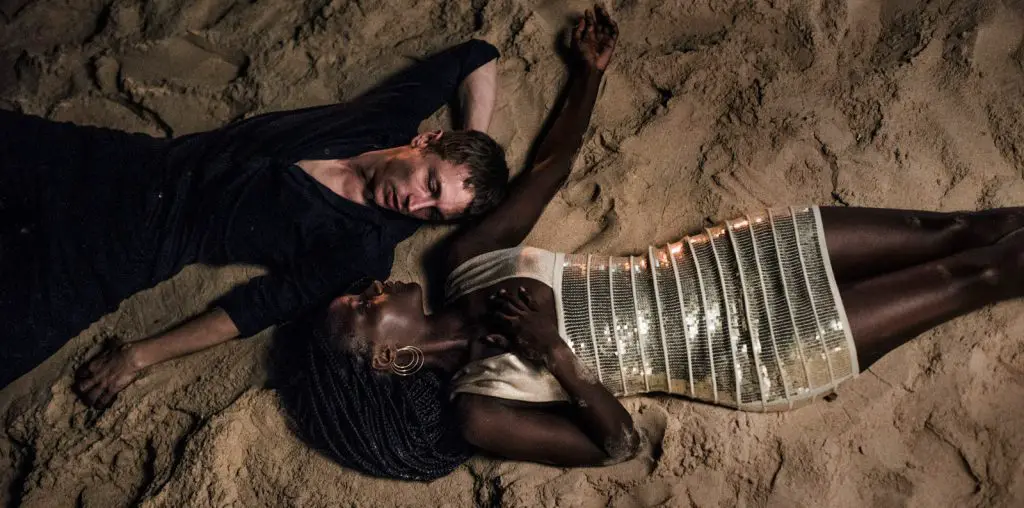
Djibil Djop Mambety’s first feature is a sprightly, spirited look at the life of an African street urchin, told through vignettes.
The version I watched did not have subtitles, and my knowledge of French is based upon French fries, French toast, and French kissing — in other words, c’est merde. Still, the film is mostly silent (with music), and what dialogue it has was dubbed after the fact.
The film begins by showing the film crew setting up for a shot, and although the work is not really a self-referential work about film, it in some ways is a self-referential work about story-telling. The characters are archetypal sketches. The titular “Boy,” for example, is chased by a “Cop,” and their relationship is not unlike that of an underdog silent film comic to his standard foil, a generic authority-figure policeman. It is the function of one to chase, the other to be chased. To reinforce the film’s connection to the silent era, Mambety himself appears as a Charles Chaplin-like figure replete with bowler and cane.
The film serves as another important indicator of how influential Western cinema has been to the rest of the globe. Like Godard’s “Breathless” absorbs and redefines tough-guy noir through the lens of French art cinema, Mambety has digested silent comedies and recreated them in a uniquely African mold.
